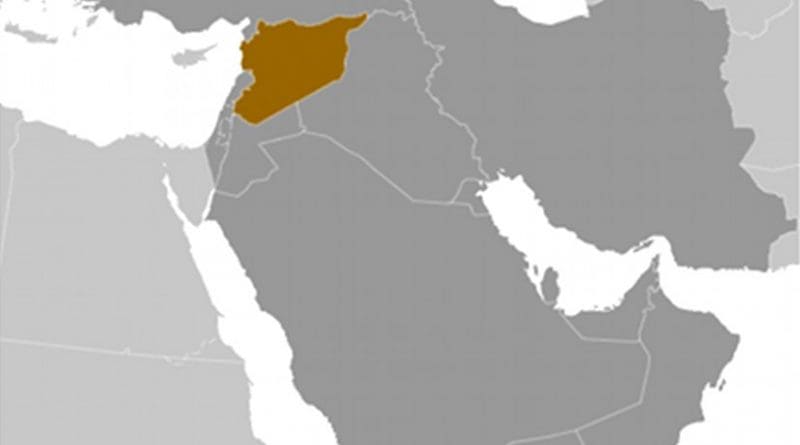At Last The US Engages In Syria – OpEd
By Arab News
By Abdulrahman Al-Rashed*
A 30,000-strong Syrian border force is being set up east of the Syrian Euphrates, bordering southern Turkey and northern Iraq. Syrian Kurds comprise half the army, with the remainder made up of local Arabs and others. The US is the entrepreneur of this new project, and it is the new player that has decided at last to get engaged in the Syrian war through supporting local opposition groups and working on the ground, in order to impose its view of the political solution in Syria.
Asharq Al-Awsat daily was the first to notice the accelerating changes, and described them as a project for the birth of a new state in Syria.
This is indeed an important development, but it would not constitute a state in the legal sense. Dividing states and creating new ones is a complex and dangerous political, legal and military process that would be rejected by most of the international community; this is what stopped the Iraqi Kurds from fulfilling their dream of establishing their own state in the region.
The eastern Syrian Euphrates project is less than a state, yet more than a protectorate. In his recent testimony to Congress, David Satterfield, acting Assistant US Secretary of State for Near East Affairs, said the project would constitute a new model in Syria. And from his testimony, the proposed mini-state appears to be a project with many ambitious goals, which involves the efforts of diplomats, intelligence officers and military commanders.
This time the US surprised everyone by showing that it could come up with new ideas, building a project from scratch and keeping it secret. Under the guise of fighting Daesh in eastern and southern Syria, the US gradually increased its forces and experts to about 5,000, more than half of them in the east of the Syrian Euphrates. Moreover, it has been training a large force of about 30,000 Syrians. Their first victory was defeating Daesh in Raqqa.
The first opposing reaction did not come from the Syrian or Iranian regimes, as was expected, but from Turkey. Ankara announced that it would not accept the American project and that it would fight the armed Syrian Kurds, who it views as an extension of the “terrorist and separatist” Turkish Kurds. Everyone is expecting military action by Turkish ground forces in Afrin in the next few days.
The skeptical Turkish position toward any Kurdish armed force on its border is justified and understandable, but Turkey’s refusal to confront Iran in Syria created a vacuum that necessitated the creation of an alternative force for this task. The countries involved in the conflict recognized the Turkish weak point and succeeded in benefiting from the pragmatic policies of President Recep Tayyip Erdogan, who seemed ready to cooperate with and concede to any party that supported the Kurds. This is what the Iranians and Russians did, pushing Ankara to reconcile with them in exchange for stopping their support of the Kurds. The Americans probably feel that they need to deliver the same message to Ankara. And there is a more important American message to the Iranian regime — that Syria would be Iran’s Vietnam.
The new Syrian force could be the best option to achieve reasonable peace in Syria, not the Russian and Iranian peace of Sochi, which is planned to impose a solution by force. Iran wants a peace that allows it to occupy Syria and dominate Lebanon and Iraq, and provides it with bargaining power in its regional issues and its relations with the West.
Iran is racing against time in its attempt to seize areas that Russia had already agreed to leave under civilian opposition management. Yasser Al-Farhan, a member of the opposition delegation, has spoken about the agreement that was violated by the Iranians. “Maps were clearly drawn showing that these areas should stay out of the control of the regime, and that they should be under the administration of local councils with no heavy weapons, while the light weapons should remain only with security and civilian defense forces to serve the local population,” he said.
“The agreement states that no Iranian militias or regime forces should be allowed in these areas; rather, a small group of Russian forces would be allowed as monitoring forces at three points to ensure the implementation of the agreement. And Turkish forces would be deployed behind the dividing line between the two sides.”
As we have seen, the Iranian militias did not respect the agreement, Russia did not force them to respect it, nor did the Turkish forces interfere. These Iranian activities prove that the Sochi agreements are not credible, which makes the existence of a parallel force a necessity in the context of the regional race for the control of Syria.
*Abdulrahman Al-Rashed is a veteran columnist. He is the former general manager of Al Arabiya news channel, and former editor-in-chief of Asharq Al-Awsat.

